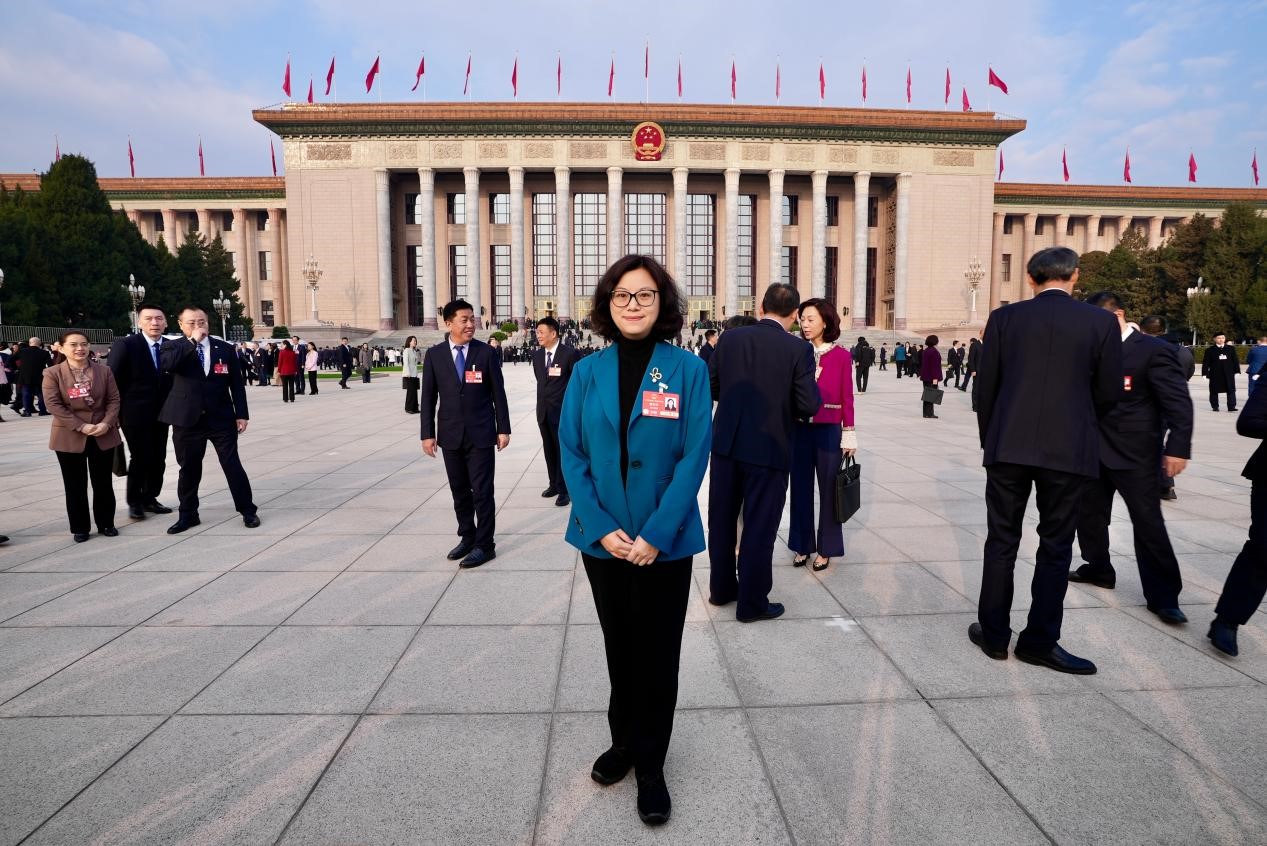
 0 Comment(s)
0 Comment(s) Print
Print E-mail China.org.cn, March 7, 2025
E-mail China.org.cn, March 7, 2025

Cao Tianlan, a deputy to the 14th NPC, poses for a photo outside the Great Hall of the People, Beijing, March 5, 2025. [Photo provided to China.org.cn]
Cao Tianlan, a deputy to the 14th National People's Congress (NPC), stressed during the "two sessions" that China must leverage collaborative innovation across industrial chains, digital transformation and Belt and Road Initiative (BRI) partnerships to propel its equipment manufacturing industry toward higher-end, greener and smarter development.
"China has maintained its position as the world's largest manufacturing hub for many years, but there remains a gap in transitioning from a manufacturing giant to a manufacturing powerhouse," Cao explained to China.org.cn. She called for technological innovation and industrial upgrading to drive this critical leap.
In Cao's view, collaborative innovation along industrial chains is pivotal for China's equipment manufacturing sector to achieve leapfrog development. It strengthens cooperation among upstream and downstream enterprises, expands production scale, enhances efficiency and bolsters risk resilience and global competitiveness. She cited the development of China's first self-developed F-class 50 MW heavy-duty gas turbine (G50) as a prime example. This breakthrough involved collaboration between over 300 upstream and downstream enterprises. Cao highlighted that the G50's journey from R&D to deployment exemplifies the success of China's new system for mobilizing resources nationwide to make key technological breakthroughs.
She further noted that in 2024, China established its first small and medium-sized gas turbine industrial chain alliance to jointly explore "Chinese solutions" to gas turbine development.
Cao also emphasized that manufacturing digitization is integral to building a modern industrial system. At Dongfang Electric Corp, where she serves as deputy chief engineer, milestones include China's first unmanned blade processing workshop, a green high-efficiency welding digital workshop, and an industrial internet platform with intellectual property rights enabling full data interconnectivity. "Moving forward, we will deepen the integration of the digital and real economies through smart technologies and digital upgrades, as well as AI Plus initiatives," she added.
Regarding international expansion, Cao acknowledged the achievements of China's high-end equipment in global markets while underscoring that BRI partner countries have become a focal point for global manufacturing competition. She highlighted landmark projects by Dongfang Electric, cooperated with a power plant in Belarus, and Jirau hydropower station in Brazil, and PV projects in Uzbekistan. These projects have not only upgraded local energy infrastructure but also generated employment and stimulated economic growth. "They have enhanced the global competitiveness of 'Made in China' while strengthening mutual trust and cooperation with BRI countries," she remarked.
In addition, Cao proposed a standardization strengthening initiative for high-end equipment manufacturing, advocating for a comprehensive industrial chain standards system to promote the global adoption of Chinese standards. She urged active participation in international standardization organizations to boost the competitiveness of China's high-end energy equipment on the world stage.